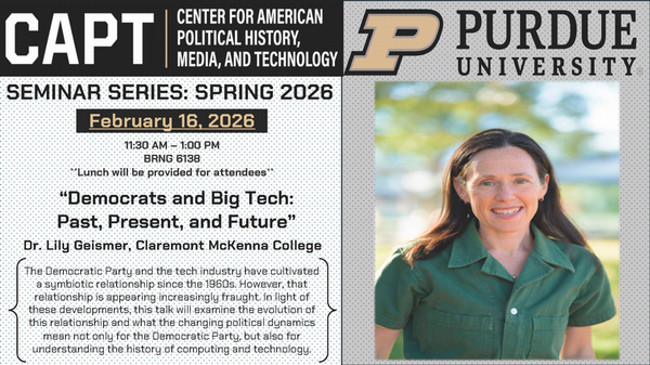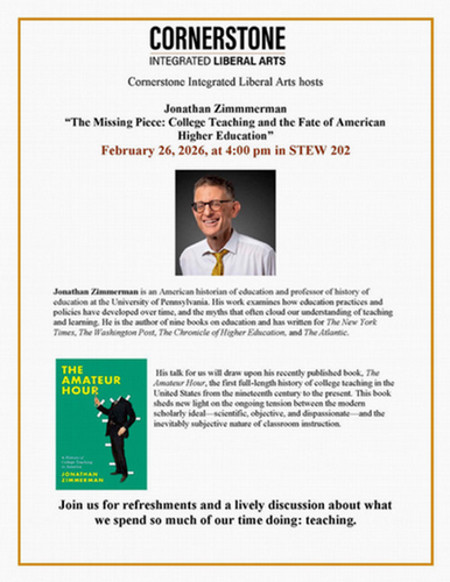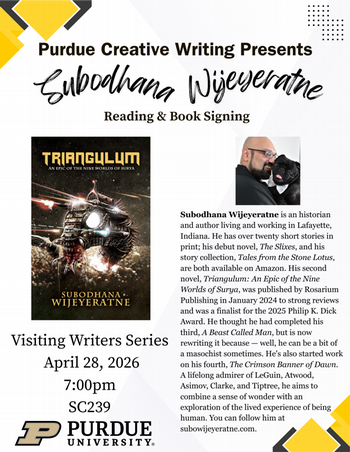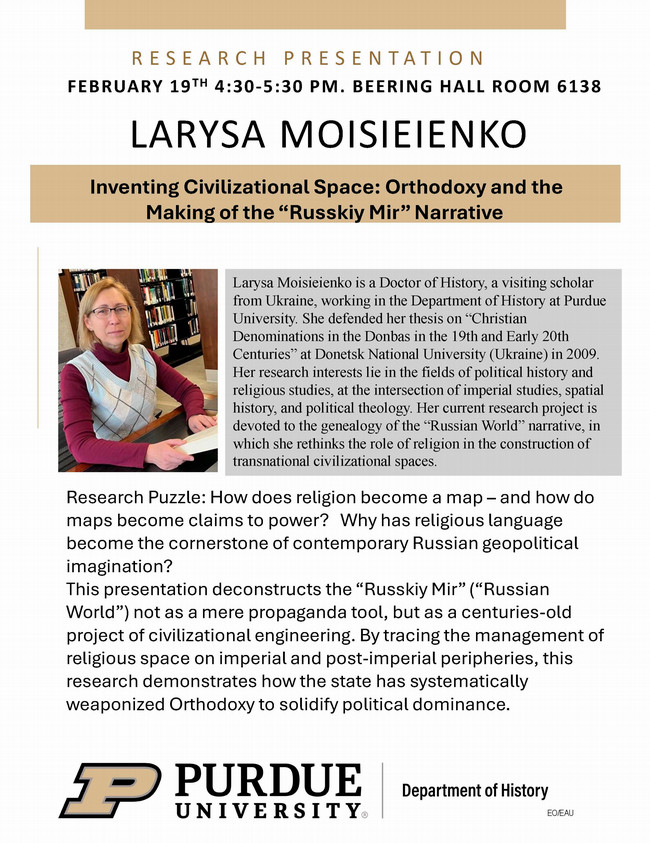
History Department Events
The Department of History hosts a number of speakers, receptions, and student presentations throughout the year. Please check this page frequently, as new events will be added periodically.
This page highlights our upcoming events in the Department of History. To see our past events, please visit this page.
Upcoming Events
CAPT Seminar Series
CENTER FOR AMERICAN POLITICAL HISTORY, MEDIA, AND TECHNOLOGY
February 16, 2026
11:30-1:00
BRNG 6138
Please join for a presentation by Dr. Lily Geismer entitled "Democrats and Big Tech: Past, Present, and Future"


Purdue Creative Writing Event
April 28, 2026
7:00 PM
SC 239
Please join for a book reading and signing with Dr. Subohana Wijeyeratne.

